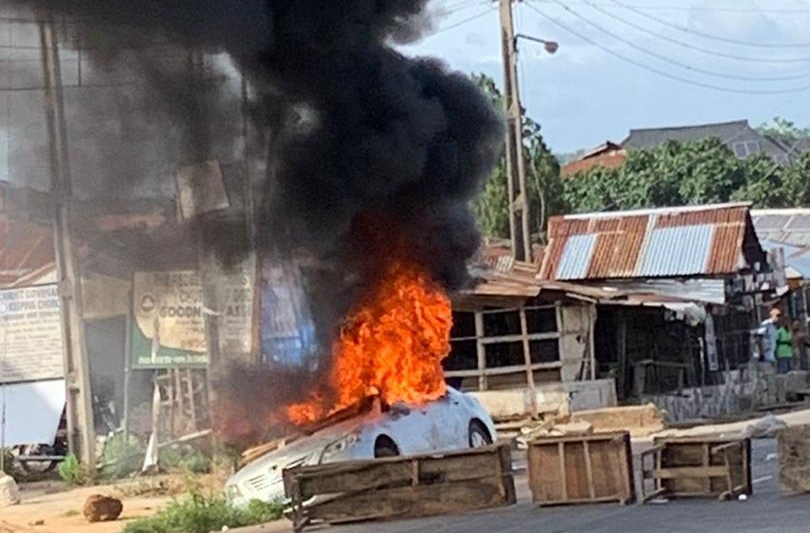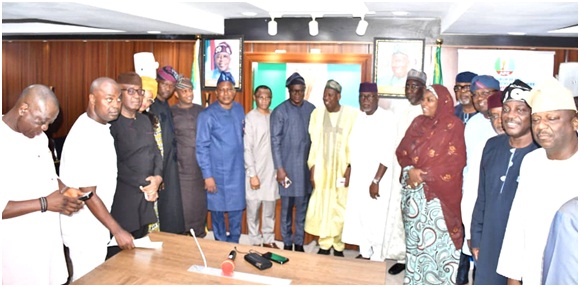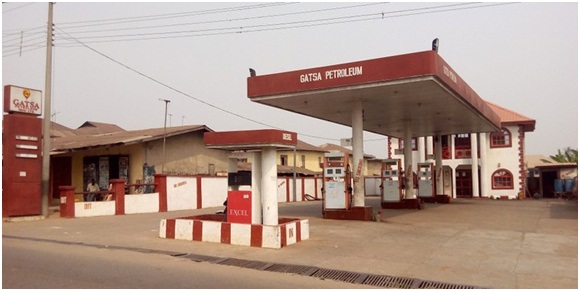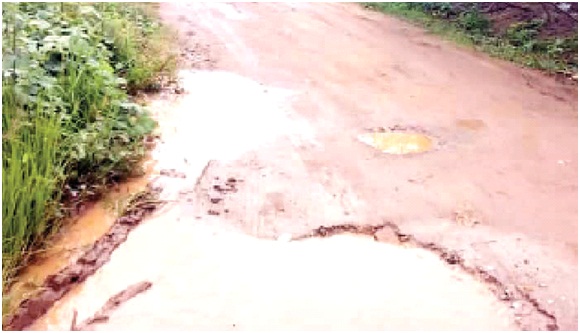When will fuel importation stop?
When will fuel importation stop?
By Bisi Olominu
|
Nigeria is the largest producer of oil in Africa and among the best ten producers of the product in the world. Despite this God-given resources, the nation still import the product in large quantity from other countries.
Annually, Nigeria spends as much as $11 billion to import petrochemical related products such as petrol, diesel, and kerosene, amongst others.
Also a report from the Nigeria Bureau of Statistics, NBS, said Nigeria imported Premium Motor Spirit, PMS, valued at N2.289 trillion in 2018. According to the report, a total of N802.4 billion was imported in the first quarter of the year, N744.28 billion in the second quarter and N742.82 in the third quarter of 2018.
On month analysis of the Nigeria’s fuel import, the report revealed that in January, February, March, April, May and June 2018, Nigeria imported fuel valued at N384.59 billion, N359.45 billion, N103.08 billion, N199.26 billion, N380.7 billion and N145.44 billion respectively.
The Managing Director of United States-based Integrated Gas and Energy Services, Mr. Emmanuel Anyaeto, while speaking at the recent edition of the annual Ghana Gas Forum in Accra said that it was for this reason that investors such as Dangote Refineries opted to build one of the largest petrochemical complexes in the world in Nigeria.
He equally stated that about 982 petrochemical plants are planned for construction around the globe in the next decade, with half of the plants expected to be built in China and India to make them net exporters of refined products which could be consumed mostly by African countries.
Anyaeto, noted that even though countries in the Asian region were the biggest consumers of refined petroleum products, the consumption levels of African countries had been projected to grow and create a supply deficit of 3.1 million metric tonnes by 2023.
“According to analytics by research agencies such as IHS Market, S&P, Mckinsey and Transparency Market Research, global petrochemical market is expected to reach $825 billion in 2018 and will continuously grow at an average compound annual growth rate (CAGR) of 6.7 per cent,” Anyaeto said.
He further stated: “The biggest petrochemical market in terms of regional demand is Asia where China alone accounts for 25 per cent of the global consumption.
“Global consumption of petrochemical grows at annual rate of 5.4 per cent and will reach 627.5 million metric tonnes in 2018.
“Ethylene, which accounts for 28 per cent of the global market is the most consumed petrochemical product. Annual demand growth in Africa is 7.1 per cent and will reach a deficit of 3.1 million metric tonnes in 2023.
“Nigeria spends about $11 billion on imported petrochemical related products in a year. You can understand why Dangote Industries is building one of the largest petrochemical complexes in world in Nigeria,” he added.
According to him, the Asian market remained the top importing region for petrochemical products, especially China and India with both countries expected to invest heavily in local refineries to meet their demands.
“Consequently, they are building mega petrochemical projects to meet their local demand. Research by GlobalData shows that about 982 petrochemical plants are planned for construction around the globe in the next decade.
“About half of the plants will be built in Asia, with majority of them in China. Which means they will soon become net exporter of petrochemical products, and of course, we all know where their target market is going to be – Africa,” Anyaeto noted.
While calling on African countries such as Ghana to consider investing in domestic refineries, Anyaeto said: “Nigeria built three petrochemicals plants in Eleme, Warri and Kaduna.
These plants have combined capacity to produce 240,000 metric tons of polyethylene; 130,000 metric tons of polypropylene and 18,000 metric tons of carbon black per annum.
“A few years after operation, all the plants became moribund. A research conducted by the University of Benin, Nigeria, identified the reasons for collapse of the petrochemical plants to include irregular importation of feedstock, poor maintenance, and lack of technical and managerial capacity.
“One of the plants at Eleme was sold to Indorama Petrochemicals in 2006 and now operates at an annual average availability of 99 per cent, having newly-built largest single-train fertiliser plant in the world”.
Also speaking on the issue, Minister of State, Petroleum Resources, Dr. Ibe Kachikwu said that subsidy on PMS, otherwise known as petrol currently stands at over N1.4 trillion.
Contributing, the Director General, Lagos Chambers of Commerce and Industry, LCCI, Muda Yusuf said that perhaps the biggest burden on the economy today is the subsidy regime.
Yusuf called on government to encourage private sector players to take over the downstream sector of the petroleum business.
“When this is done, most of the challenges see as regards subsidy,refineries and others will be adequately addressed. The government should only pay a regulatory and not an operational role”.
To Alhaji Debo Ahmed, Chairman Western Zone, Independent Petroleum Marketers Association of Nigeria, IPMAN, he urged government to liberalise and enforce total deregulation of the downstream sector to boost the country’s economic growth.
“If government likes, they can introduce gradual removal of subsidy but it should not go beyond 6 to 18 months period. If fully deregulated with roles, you will have the serious investors coming to invest adequately”.
The Minister for State Petroleum, Kachikwu had promised in 2018 that fuel importation would end. We are in 2019, even the first quarter gone, the question remains, when will fuel importation end?










